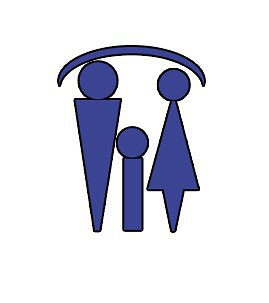
Share, Email & Print
Some useful questions to ask when choosing a counsellor
The following are questions to ask a Counsellor and Therapist as recommended by the BACP (British Association for Counselling and Psychotherapy). I will discuss these kind of things with you so that it’s very clear how we will work together.
Would Online Counselling be something for you?
Lately, there has been much discussion about how to get better access to GPs and health services in general. The NHS Choices allows us to check symptoms and get some advice online. Some GPs are introducing Skype appointments and many now use telephone rather than seeing their patients face-to-face. Waiting times for NHS talking therapies are very long but as yet, there is no alternative other than the counselling offered by charities or a short telephone call from a Wellbeing professional.
When we, or someone close to us, feel down, anxious, depressed or just miserable, the internet is often our first port of call. We may have to wait a few days to see our GP or don't want to bother him/her with it. We need his/her referral to access a Wellbeing clinic. We search for some advice that might help us to feel better and/or for books that can give us advice on depression and anxiety or relationship problems.
Few know about another option, which is not free but often cheaper and faster to access: online or i-Counselling. Clients book for one session or more, for 30 mins or an hour. Often late evening or early morning appointments are available and weekend appointments as well. It is ideal for those of you travelling away from home for work, living a distance from counselling services, are disabled, sick or have a young family where baby sitters are not always available.
It is also cheaper as there are no travelling cost and it saves time.
Booking and payment (PayPal or BACS) is easy.
If you think this might be something for you but would like to know more, send me an email or text (07890425960). I then forward you all the details, which will answer some of your questions and concerns, and payment instructions, including information about how to safeguard yourself. It is important that you read it carefully. You can always ask me more, before you commit yourself.
Why not have a go? Asking for the information does not commit you to making an appointment. To email me, please click here.
(I am registered with the Information Commissioner's Office (ICO) and adhere to the data protection act of 1998. You can ask me to tell you about any personal information I hold about you, and provide you with a copy of that information.)
Some thoughts about Relationship Counselling (also called Couple Counselling).
Anger is a human emotion that we all feel at one time or another. It is not the feeling that is problematic, rather it is our lack of knowledge of how to express anger which leads to so much sadness. In a family unit there is bound to be many times when one member is angry at another. How the individual chooses to express this feeling makes all the difference. When anger is repressed it tends to leak out into all aspects of the relationship. Learning how to communicate effectively when you feel angry with another is the key to happy relationships.
Why do couples often wait such a long time before they seek professional help? Is it embarrassment, shame, guilt or are they hoping that their problems will be solved somehow? Do they blame each other for their failing feelings for each other or is it simply a lack of communication and sharing thoughts and feelings?
Couples tell me often that they wished they had come to see me sooner. Unfortunately, for some the gap has by then widened so much that bridging it is beyond them. For others, where the fire has not gone out completely and can be rekindled by gently re-stoking, there is opportunity to achieve a fresh and often a strengthened and richer relationship.
In the session, I help the couple to identify what works well and where it has got stuck. For many couples, they discover that they were not always ready to adapt to changing circumstances, that they didn't know how to address their reactions to change or how to talk to each other about it..
In the safe environment of the therapy room and supported by the therapist, they examine what and how much each contributes in:
their commitment to each other,
their application of different aspects of intimacy
expressing what each longs for and allows passion to play its part?
Relationship counselling is for all couples, same sex as well as heterosexual, and for people from all different social and cultural backgrounds. Unfortunately, it is seldom available on the NHS.
If you like to know more, click here to email me.